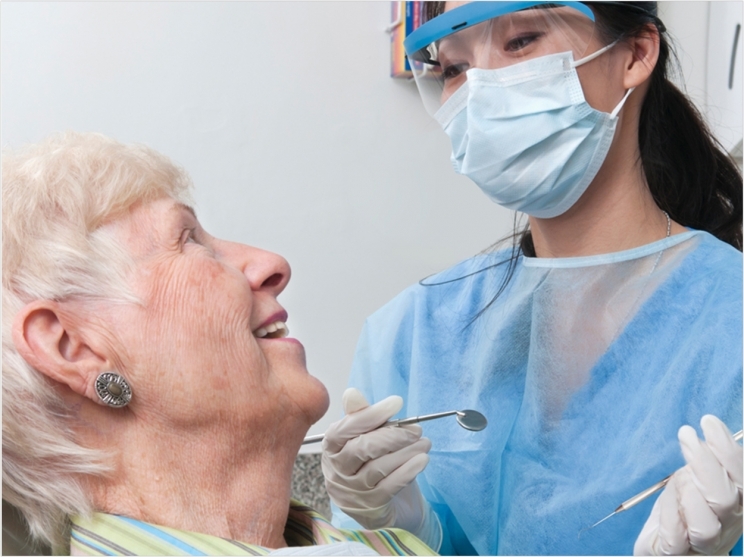
Researchers at the Case Western Reserve University School of Dental Medicine will use a $4.2 million grant from the Patient-Centered Outcomes Research Institute (PCORI) to study tooth decay treatment in older adults and develop a more effective standard for treating senior citizens with cavities.
Tooth decay often goes untreated in older adults because of worries about the cost, lack of transportation to make appointments, and other medical concerns, said Suchitra Nelson, PhD, professor of community dentistry and assistant dean of clinical and translational research at the school.
Nelson and her team will examine if two treatments are comparatively effective: a simple medical treatment of topical silver fluoride or a less complicated dental filling that doesn’t require a drill or fluoride.
“We want to adopt a standard of care for addressing cavities in older adults,” said Nelson, the project’s principal investigator. “We want to reduce oral health disparities by determining the most effective, efficient, and patient-centered treatments delivered in community-based or clinical settings.”
Nelson said she and her research team have worked since 2012 to address oral issues for older adults, particularly low-income residents and minorities, who tend to have higher rates of untreated tooth decay.
“This fits in so nicely with all the other oral health disparities work that we’re doing here at the dental school,” said Nelson.
PCORI decided to fund the study after a highly competitive review process in which patients, clinicians, and other stakeholders joined clinical scientists to evaluate the proposals, the school reports.
“This project was selected not only for its scientific merit and commitment to engaging patients and other stakeholders, but also for its potential to fill an important gap in our health knowledge and give people information to help them weigh the effectiveness of their care options,” said PCORI executive director Joe Selby.
“We look forward to following the study’s progress and working with Dr. Nelson to share the results,” Selby said.
Related Articles
Genetics Has Little Impact on Oral Health
Microrobots Remove Dental Plaque
Dental Phobias Have No Impact on Treatment Planning


